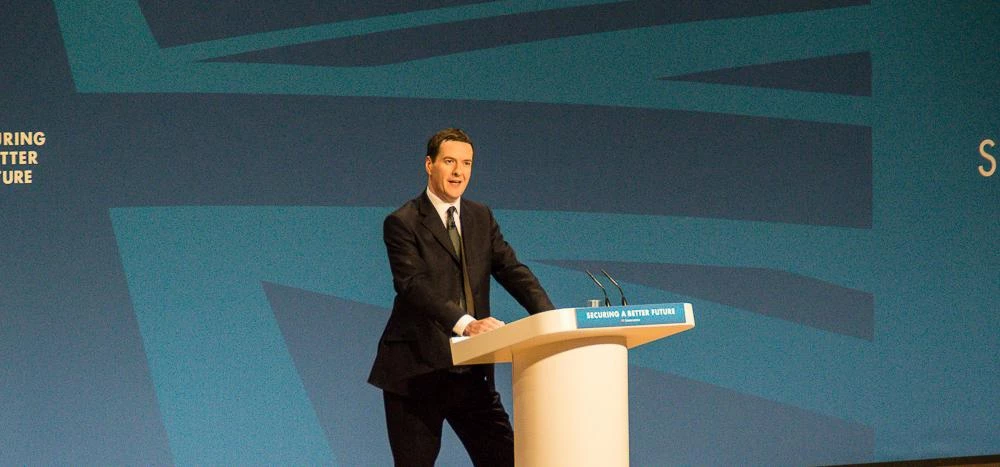
Partner Article
Government on track to ‘end waste and inefficiency’ and save £20bn in 2015
The government has already identified £11 billion of efficiency and reform savings for the next financial year up to January 2015.
Chancellor George Osborne has announced the government is on track to deliver its target of saving £20 billion for 2014 to 2015 against a 2009 to 2010 baseline through efficiency and reform, and by reducing losses to fraud, error and uncollected debt, the Minister for the Cabinet Office has announced.
The £20 billion for this financial year is equivalent to £1,100 for each family across Britain – enough to fund over 700,000 nurses or pay for more than 4.7 million primary school places.
The Minister for the Cabinet Office Francis Maude today announced that for the financial year 2014 to 2015 up to January 2015, the government has already identified £11 billion of efficiency and reform savings, compared to a 2009 to 2010 baseline – an increase of a third from the same point last year.
The Minister confirmed that the Civil Service has reached its smallest size since the Second World War with 21% fewer civil servants on a like-for-like basis.
Central government’s property estate is down by a fifth and the government has got out of 2,018 buildings – the equivalent of 1 a day – since 2010.
Property assets will now be centrally owned and managed to speed up savings. In addition, an innovative deal to create a joint venture (Crown Hosting Data Centres Limited) for hosting data servers will save up to £100 million over 7 years.
A number of new initiatives to help deliver further savings were also unveiled yesterday:
- recruiting 25 new commercial experts to drive further savings from supplier contracts and improve commercial capability across the civil service
- publishing more detail on the government’s functional leadership model
- launching a Project Leadership Programme with Cranfield University to improve project management skills
- reviewing telecommunications and digital infrastructure to identify networks which could be used more efficiently to enhance connectivity, both within government and for the public
Since May 2010 the Cabinet Office has led a programme of efficiency and reform, working closely with HM Treasury, to ensure taxpayers’ money is ‘spent wisely’.
These savings announced today follow the £14.3bn saved for 2013 to 2014, the £10bn saved for 2012 to 2013, £5.5bn for 2011 to 2012 and £3.75bn for 2010 to 2011 – all measured against a 2009 to 2010 baseline. These figures also include a mixture of recurring and non-recurring items and have been verified by the National Audit Office.
Chancellor of the Exchequer, George Osborne, said: “Spending taxpayers’ money wisely and driving up the quality of public services is a key part of our long term economic plan. These figures show that this plan is working.
“The challenge to end waste and inefficiency across government is a sizeable one, but done sensibly, from pushing hard on digital technology to vacating underused property, it means more public spending can go on the things that matter most.
“The job is not done, but under the leadership of Francis Maude, and others in the government, significant progress has been made.”
The Minister for the Cabinet Office, Francis Maude, said: ’We have worked from day one to make savings from the running of Whitehall.
“I’m delighted to confirm that we are on track to exceed our target of saving £20 billion for this financial year, compared to a 2009 to 2010 baseline – that’s the equivalent of £1,100 for every family in Britain.
“We have already identified £11 billion of efficiency and reform savings for this year with more to come, as well as reductions from fraud, error and debt. By sticking to our long-term economic plan we will be able to save so much more in the years to come.”
This was posted in Bdaily's Members' News section by Ellen Forster .
Enjoy the read? Get Bdaily delivered.
Sign up to receive our popular morning National email for free.








 Raising the bar to boost North East growth
Raising the bar to boost North East growth
 Navigating the messy middle of business growth
Navigating the messy middle of business growth
 We must make it easier to hire young people
We must make it easier to hire young people
 Why community-based care is key to NHS' future
Why community-based care is key to NHS' future
 Culture, confidence and creativity in the North East
Culture, confidence and creativity in the North East
 Putting in the groundwork to boost skills
Putting in the groundwork to boost skills
 £100,000 milestone drives forward STEM work
£100,000 milestone drives forward STEM work
 Restoring confidence for the economic road ahead
Restoring confidence for the economic road ahead
 Ready to scale? Buy-and-build offers opportunity
Ready to scale? Buy-and-build offers opportunity
 When will our regional economy grow?
When will our regional economy grow?
 Creating a thriving North East construction sector
Creating a thriving North East construction sector
 Why investors are still backing the North East
Why investors are still backing the North East